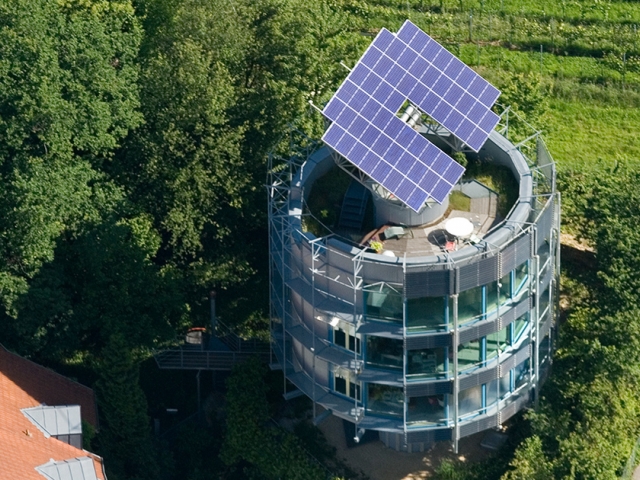
Houses that can generate energy for their own content, and even distribute this resource to other houses, can be found in many parts of the world. In the near future, the dwellings of all people can look similar.
One of the brightest projects for today is the Heliotrope house. The architect of this building admitted that the government helped him to realize this project. Initially, the government decided to build a nuclear power plant in the city of Freiburg, but a supporter of green technologies managed to prevent it and achieved the construction of the house.
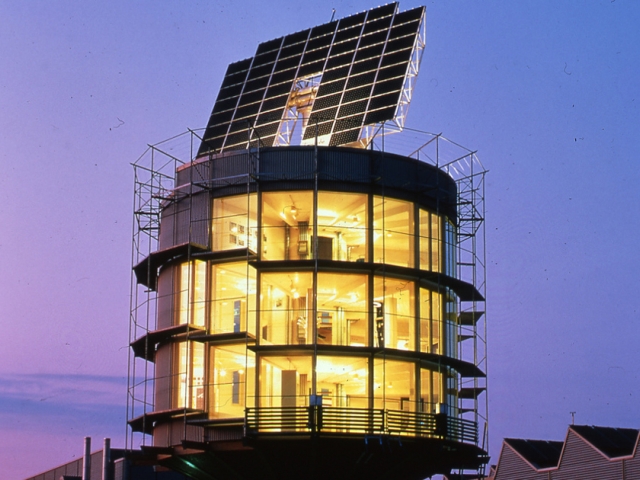
Heliotrope does not need artificial electricity – it produces it for itself. The house does not depend on either the nuclear power plant or the city networks. Today this project is considered to be the first of such houses in the world.
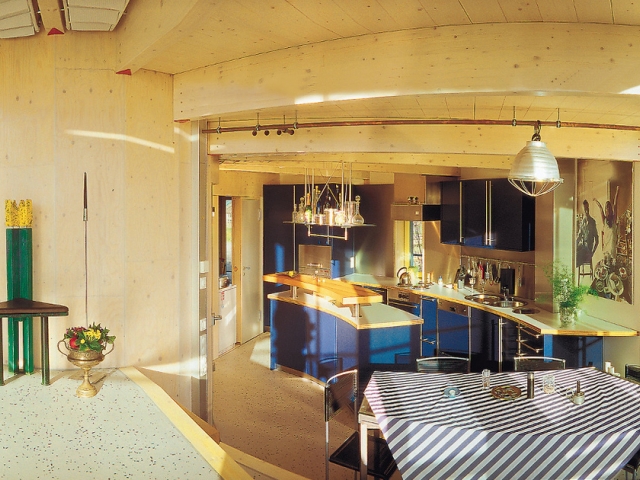
The main "trick" of the house is its design. It is a cylindrical house mounted on a giant pole, rotating to track the sun's path for fullest access to sun's energy. This house is made of wood, which resembles a huge tree that rotates around a central axis. In 12 hours, it rotates 180 degrees about one to two degrees in ten minutes to capture maximum sunlight. The Heliotrope is able to provide with energy not only itself but five neighboring houses.
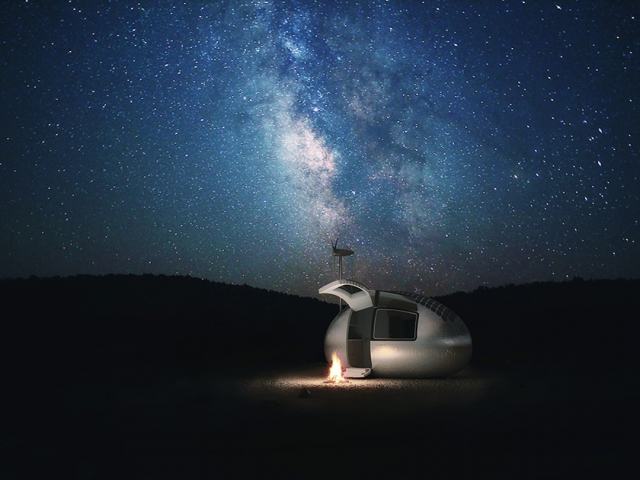
The similar design work – Ecocapsule house – was presented at the Pioneers Festival in Vienna. There are several ideas for this house. First, compact and easy to transport. Since the house weighs only 1.5 tons, it can be transported from one place to another. Inside the capsule you can find a study and a bedroom, as well as a kitchen and shower area.
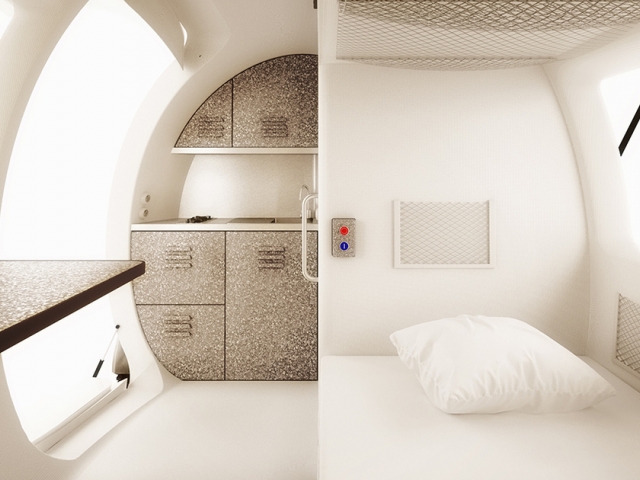
High-efficiency solar cells and a silent wind turbine produce energy that is stored for use during periods without sufficient sunlight or wind. A thick wall of thermal insulation helps protect against the elements and reduce thermal loss. The spherical form of the Ecocapsule maximizes rainwater and morning dew collection and is equipped with membrane water filters to render it potable.
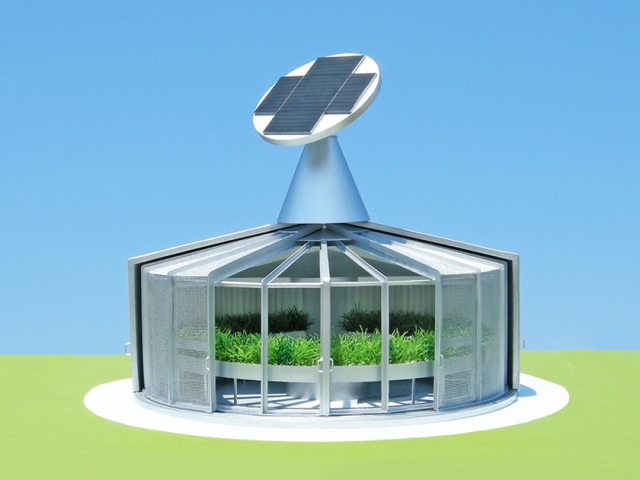
Another promising project is the Eco-Aquaponic House. Eco-Aquaponic House is a cylindrical steel structure that creates a self-sustaining environment for growing fish and plants – waste generated by the fish is used to fertilize the crops. The building is equipped with glass and shade screens that rotate to adjust to different weather conditions. During hot weather the shade screens can be pulled around the plants to prevent overheating, while in the winter two insulating sections are positioned to protect the plants and fish from the cold.
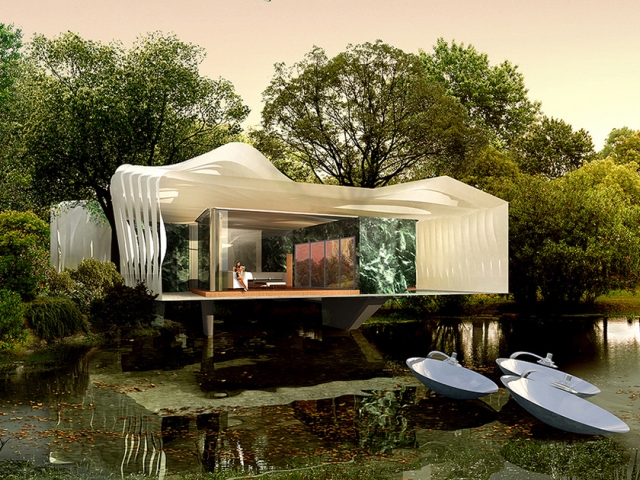
Finally, Birds-Island, built in Kuala Lumpur, demonstrates the latest technology of our time. Bird Island is a stunning urban renewal project that is currently being developed in Kuala Lumpur, Malaysia. Designed by Graft Lab architects for the YTL Green Home Competition, the project comprises a zero energy home made of sustainably-sourced silicone glass fabric.
 Български
Български 
 Русский
Русский English
English Bahasa Indonesia
Bahasa Indonesia Bahasa Malay
Bahasa Malay ไทย
ไทย Español
Español Deutsch
Deutsch Français
Français Tiếng Việt
Tiếng Việt 中文
中文 বাংলা
বাংলা हिन्दी
हिन्दी Čeština
Čeština Українська
Українська Română
Română
